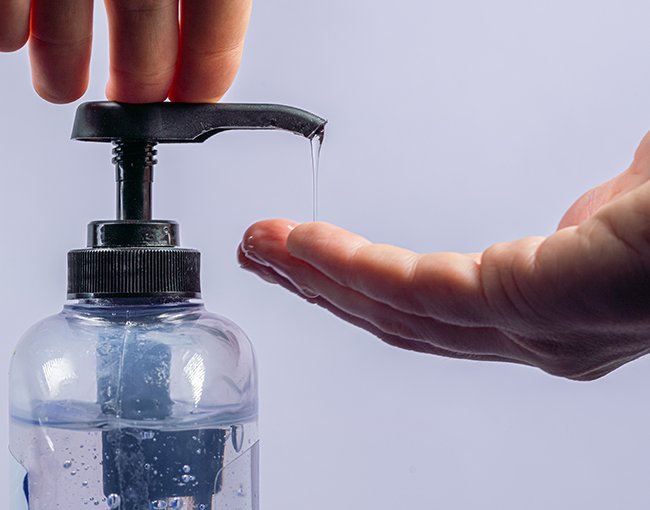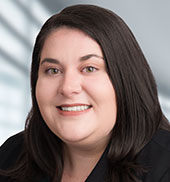As businesses pivot to manufacture much-needed health and safety items such as masks, hand sanitizer and disinfectant wipes, they should also be diligent in consulting with their attorneys to avoid claims of deceptive advertising for COVID-19-related products.
The U.S. Department of Justice (DOJ), U.S. Federal Trade Commission (FTC), U.S. Food and Drug Administration (FDA), U.S. Centers for Disease Control (CDC), state attorneys general and class action plaintiffs are already targeting companies that claim their products can treat or prevent COVID-19.
DOJ
- The DOJ has filed its first enforcement action against the operators of a website called www.coronavirusmedicalkit.com, for attempting to fraudulently profit from the pandemic.
FTC and FDA
- Earlier this year, before COVID-19 gripped the United States, the FDA issued a warning letter to GOJO Industries, Inc. (the makers of PURELL) that GOJO lacks credible scientific studies to back the claim that it can prevent “99.9% of illness-causing germs.”
- We note of interest, that the FDA’s aggressive January 2020 position appears to be challenged by (1) the CDC’s recent hand sanitizer guidelines, (2) the FDA’s “Safely Using Hand Sanitizer” section of its website and (3) the FDA’s March 2020 Temporary Policy for Manufacture of Alcohol for Incorporation Into Alcohol Based Hand Sanitizer, all of which appear to support the use of hand sanitizer for preventing the spread of the virus.
- Recently, the FTC and FDA jointly issued warning letters to seven companies allegedly selling unapproved products that may violate federal law by making deceptive or scientifically unsupported claims about their ability to treat COVID-19. According to the FDA, there are no approved vaccines, drugs or investigational products currently available to treat or prevent COVID-19. Thus, any products alleging otherwise are in violation of the Federal Food, Drug, and Cosmetic Act as “unapproved new drugs” and “misbranded drugs.”
State attorneys general
- The Missouri Attorney General has brought suit against TV evangelist Jim Bakker for claims that Bakker’s Silver Gel can treat COVID-19 (March 10, 2020)
- The New York Attorney General has sent cease and desist letters to companies claiming their products can prevent or beat COVID-19. (March 11, 2020; March 12, 2020; March 20, 2020; March 20, 2020; March 26, 2020)
- The California Attorney General issued a warning regarding COVID-19 that “a statement does not have to be literally false to be illegal.” (March 23, 2020)
Lawsuits
- Germ-X – A proposed class action now pending in California alleges that Germ-X, a company that makes hand sanitizer, has falsely claimed its product can fight the coronavirus. According to the lawsuit, consumers purchased hand sanitizer based on the company’s alleged lies. See Geraldine David et al. v. Vi-Jon Inc., Case No. 3:20-cv-00424 (S.D. Cal.).
- PURELL – The maker of Purell, GOJO Industries, Inc., is facing similar suits related to the company’s hand sanitizer claims in New York, California, and Ohio. See Magdiela Gonzalez et al. v. Gojo Industries, Inc., Case No. 1:20-cv-00888 (S.D.N.Y.); see Marinovich v. Gojo Indus., Inc., Case No. 3:20-cv-747 (N.D. Cal.); see Aleisa v. Gojo Indus., Inc., Case No. 2:20-cv-1045 (C.D. Cal.); see Jurkiewicz v. Gojo Indus., Inc., Case No. 5:20-cv-279 (N.D. Ohio); see Miller v. Gojo Indus., Inc., Case No. 4:20-cv-562 (N.D. Ohio).
- Target – A recent California class action alleges the Target-brand hand sanitizer is falsely advertised as killing “99.9% of germs” and preventing viruses such as the coronavirus. See Taslakian v. Target Corporation, et al., Case No. 2:20-cv-02667 (C.D. Cal.).
- Zylast – A federal court granted summary judgment and held that the company’s new ethyl alcohol mix (Zylast Antiseptic soap products) constituted a new drug that needed to undergo the regulatory approval process for new drugs before the defendant could have put it to market. See United States v. Innovative BioDefense, Inc., Case No. SA CV 18-0996-DOC, 2019 WL 7195332, at *1 (C.D. Cal, 2019).
Please contact us if you have additional questions.



